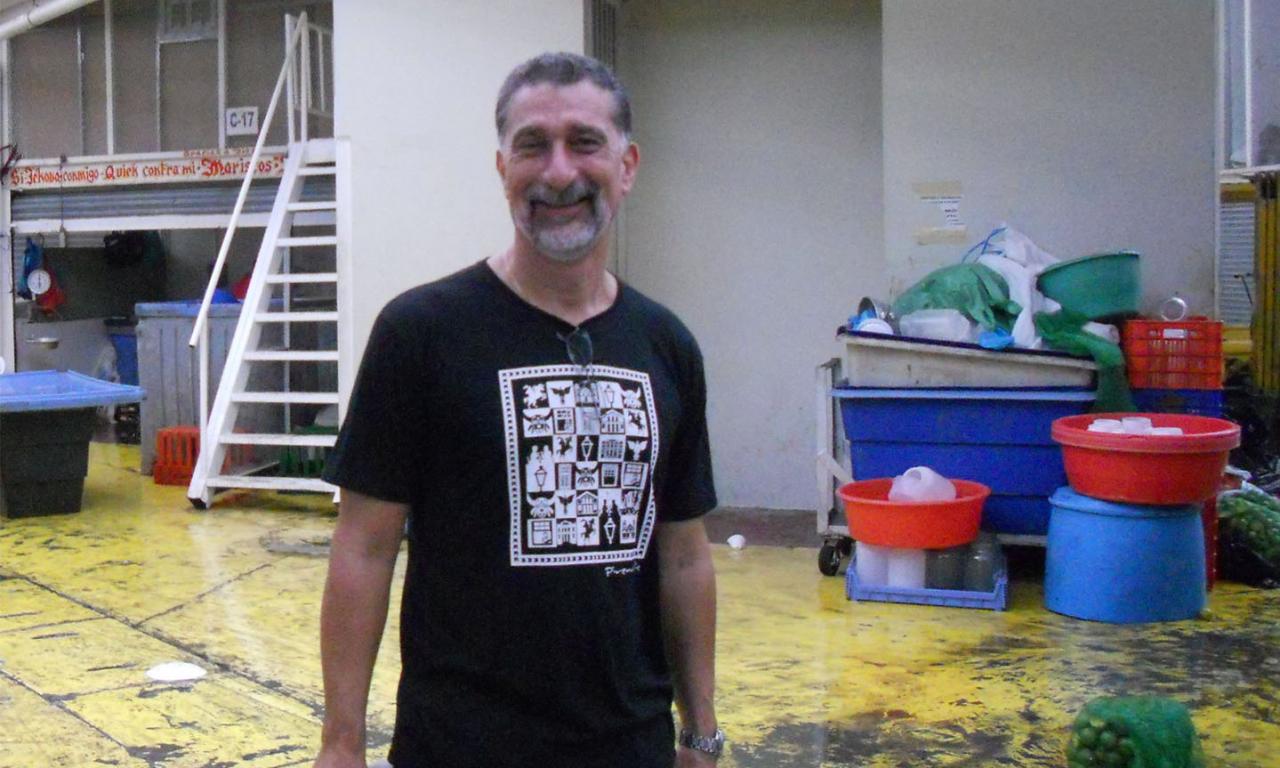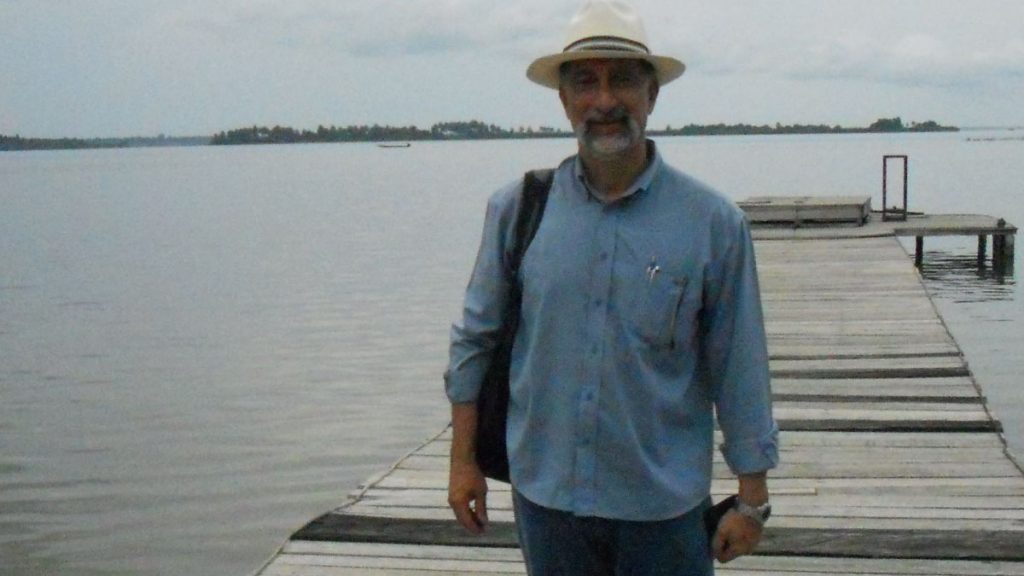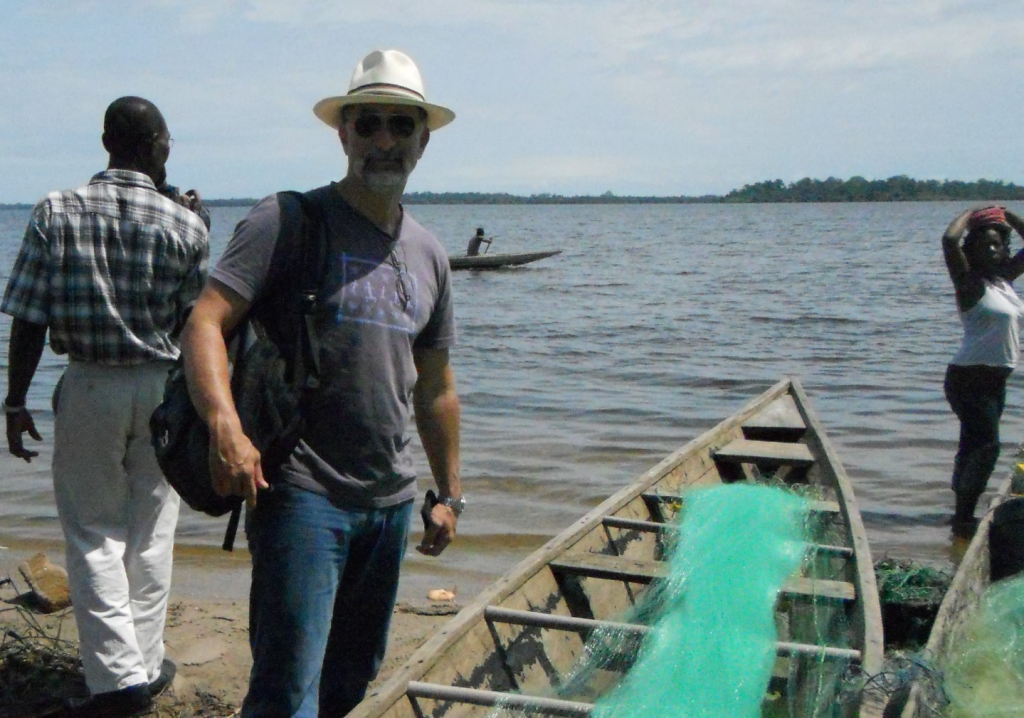
Illuminating Hidden Harvests (IHH): The contribution of small-scale fisheries to sustainable development is a collaborative study led by the UN Food and Agriculture Organization, Duke University and WorldFish. In this series, we profile some of the more than 300 experts from over 50 countries who contributed to the 58 country case studies and thematic studies included in the IHH research, due out in 2021.
Dr. Sergio Macedo Gomes de Mattos, who works for the Brazilian Artisanal Fishing Network (Teia de Redes da Pesca Artesanal do Brasil), was a contributing author to the marine part of the IHH Brazil case study. Mattos has worked in small-scale fisheries for 30 years and is interested in the implementation of fisheries policies and undertaking research into fisheries bio-economics, stock assessment and transdisciplinary approaches to achieving sustainable small-scale fisheries. We spoke with him about how he believes the IHH method and findings will have an impact in Brazil.

Tell us about the role and contributions of small-scale fisheries in Brazil that the IHH case study will help to highlight?
Small-scale fisheries in Brazil make significant contributions, such as reproducing traditions and cultures, supporting food and nutrition security, and enhancing the vitality of aquatic environments. In addition to these benefits, the IHH Brazil case study will highlight the constant challenges faced by the sector, which generate complex and dynamic contextual sectoral demographics. It will become clear how burdensome the access of these populations is to fundamental rights.
Why do you believe the IHH study is important?
From my experience with the Brazil case study, I see that the IHH study will highlight the importance of working in partnership and enhancing co-management with fishing communities, which is the only way to improve local monitoring, control, and surveillance. Working in this way has and will continue to enhance the engagement of fishers and find the most desirable and traditional knowledge.
What’s new in the approach that the IHH study is taking to understand SSF in Brazil?
The use of the ‘fishing unit’ [a matrix approach to characterize fishing activities], which enabled our team to account for local needs and available information in the data collection. We observed outstanding achievements by using this approach, such as the extrapolation of territorial data to the national level.
Compiling the case study data helped to highlight the commitment of stakeholders to maintain in-depth databases over many years. The team also accessed a range of official and unofficial databases, many of which are not extensively known but are now no longer hidden.
What were the biggest challenges for the IHH Brazil team in completing the IHH country case study?
Challenges included the recording of fishing data among proposed fishing territories and having to invest a lot of effort to achieve a reasonable coverage of small-scale fishing territories along the Brazilian coast.
In your opinion, how will the IHH study be used in Brazil?
Generally speaking, I think it will be used to support sustainable development. Data and information like that generated by the IHH study are essential to the management process and the implementation of public policies. In turn, this leads to sustainable development through an efficient and effective institutional and legal framework.
Do you think that the IHH findings will lead to any positive or negative impact on small-scale fisheries, food security or the environment in Brazil? In what way?
Small-scale fishery management is possible if, and only if, data and information can be accessed and assessed. The IHH findings, therefore, will support efforts to achieve political coherence at the national level in Brazil. In addition, the IHH study will be an instrument of knowledge and an enabler of reforms in the complex legal and institutional frameworks that govern Brazilian small-scale fisheries.

What can be done now to ensure the IHH study and your work here has the most significant effect?
In Brazil, the lack of leadership and governmental structure at all levels is a severe problem that has persisted for decades. Compounding this, local fishing regulations don’t reflect the practices of small-scale fishers in fishing territories. Besides revealing hidden harvests, collecting the IHH Brazil case study data revealed an until now unknown social and territorial dimension through the data found in each respective community, giving voices to local agents and their traditional knowledge. Communicating the forthcoming IHH findings in Brazil will, therefore, support monitoring around the implementation of fishing policies.
How can research like IHH help to achieve the SDGs, particularly around eradicating poverty and ending hunger in developing countries?
Eradicating poverty and ending hunger are challenges worth prioritizing. Developing countries must look at international legal instruments and procedures to support sustainable small-scale fisheries within a sound governance system. National governments must carry out this work by avoiding conflicts that may result in the collapse of fisheries management and the regulatory framework and, ultimately, undermine the fishing communities’ social well-being.
Other members of the IHH Brazil country case study team were:
- Fabrício Gandini Caldeira, oceanographer, MARAMAR Institute for Coastal and Fisheries Management
- Mathias John Wojciechowski, territorial planning and management, World Fisheries Trust (WFT)
- Flavio Diniz Gaspar Lontro, artisanal fisher, General Coordinator of the National Commission to Strengthen Marine Extractive Reserves - Confrem Brazil
- Francisco da Rocha Guimarães Neto, artisanal fisher, Directorate Member of the National Commission to Strengthen Marine Extractive Reserves - Confrem Brazil
- Kátia Regina Aroucha Barrros, social educator, Adviser Member of the National Commission to Strengthen Marine Extractive Reserves - Confrem Brazil